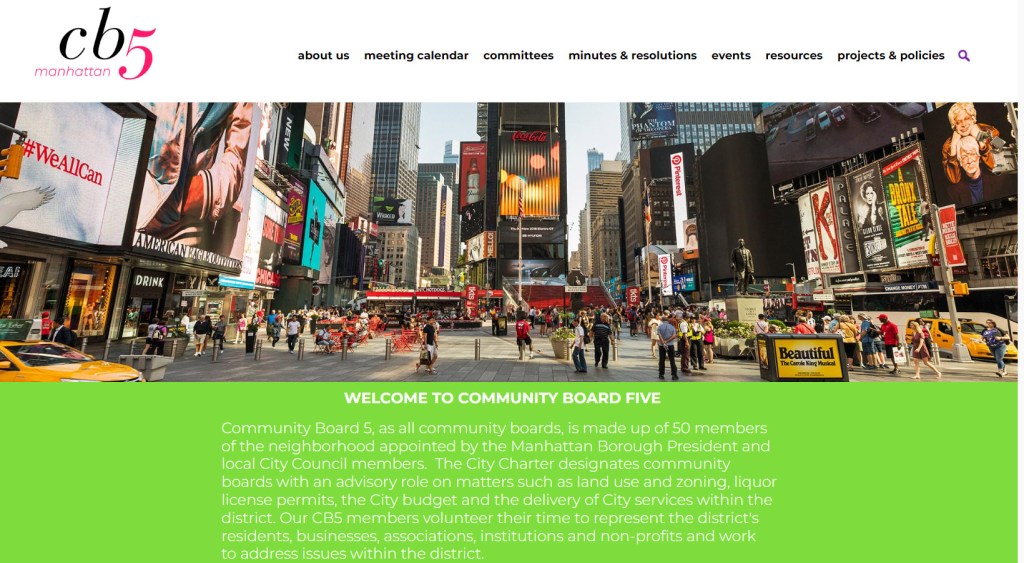Manhattan’s Community Board 5 has tabled a vote that would have prevented lobbyists, board or staff members at advocacy groups and political action nonprofits from voting on measures that involved those groups and holding certain executive positions. We recommend that it stay permanently tabled.
This might seem like a strangely specific effort, and the reason is that it is very much targeted at particular current members of the unpaid neighborhood advisory panel, including Board Chair Samir Lavingia, who are also employees or members of the pro-housing advocacy group Open New York.
Despite all the heady insinuations by their opponents, pushing for policies to increase the city’s housing stock is a relatively anodyne and widely-held perspective among both elected officials and the general public.
This rule seems aimed at people who would attempt to join the community board after developing some sort of ardent civic interest that got them interested in local governance, which leads us to ask: who else is there?
If the 50-member board were now to say that people who got involved in community groups and organizations pushing for practically any policy outcome are barred from participation in actual votes around that policy, what message is that sending to anyone who’d want to get involved in the most basic building block of NYC government?
We understand that some community boards are at least partly staffed by political careerists with no deeply held civic convictions, but we’d prefer if that wasn’t de facto made a preference.
This Editorial Board is very openly pro-housing. We have laid out specific housing policy preferences, chastised elected officials for failing to act on one of the the city’s and state’s most pressing emergencies and largely dismissed NIMBY activists as variously motivated by short-term personal preference, short-sighted disinterest in market dynamics or general failure to grasp the scale, necessity and appropriate tools to tackle housing construction.
We’re not fans of having anti-housing people on the 59 community boards across the city and would urge an appointing borough president to not stack any board with too many of them.
Yet if the tables were turned here — if the board was trying to ram through this rule change because some members were part of housing-skeptic groups — we’d come down on the exact same side, because the rule doesn’t make sense: Members should not be barred from casting votes.
It’s telling that this rule isn’t contemplating people involved in some commercial enterprise that touches on the board’s business and flouting clear conflicts of interest; those with commercial incentives like possession of existing real estate that could be devalued in the event of additional local housing construction are free to vote in ways that directly impact their bottom lines, but participation in formal political advocacy, apparently, is going a bridge too far.
Community boards aren’t juries. There is no expectation that their members arrive at political issues with a more or less a blank slate. This doesn’t mean that they should be closed-minded or fanatical about their positions — ideological evolution is an undervalued political attribute — but why would they have to be impartial?
If the community board’s anti-housing factions don’t think they can win this argument on the merits, then trying to do so via procedural jimmying is wholly inappropriate.
